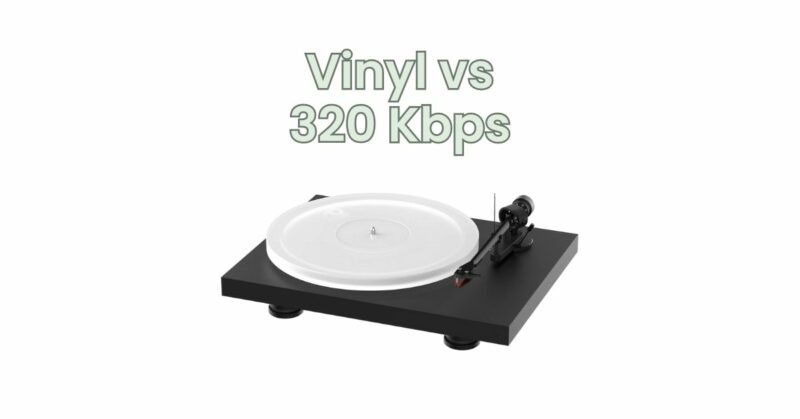When it comes to audio quality, the battle between vinyl records and digital formats like 320 kbps (kilobits per second) MP3 files has been a subject of debate among audiophiles and music enthusiasts. Vinyl records offer a distinct analog sound experience, while 320 kbps digital files provide a convenient and portable format. In this article, we explore the nuances of sound quality between vinyl and 320 kbps, shedding light on the strengths and considerations of each format.
Vinyl: Analog Warmth and Fidelity Vinyl records have long been cherished for their unique sound qualities. Here are some advantages of vinyl:
- Analog Sound: Vinyl records offer an analog sound experience, capturing the warmth, depth, and nuances of the original recording. The analog nature of vinyl provides a rich and dynamic sound that can be perceived as more authentic and natural compared to digital formats.
- High Fidelity: Vinyl records typically offer a higher level of fidelity, presenting a broader frequency range and greater dynamic range compared to compressed digital formats like 320 kbps MP3. This can result in a more detailed and immersive listening experience.
- Preservation of Original Mastering: Vinyl records are often cut directly from the original master recordings, preserving the intended sound as the artist and producer envisioned. This factor can contribute to a more authentic representation of the music.
320 kbps: Digital Convenience and Portability 320 kbps MP3 files have become a popular format for digital music distribution. Here are some advantages of 320 kbps digital files:
- Portability and Accessibility: 320 kbps MP3 files are highly portable and can be easily stored and played on various devices, including smartphones, laptops, and portable media players. This convenience allows for music to be enjoyed on the go.
- Space-Efficient: Compared to vinyl records, digital files take up significantly less physical space, allowing for a vast music library to be stored on a single device or in the cloud. This eliminates the need for physical storage and provides easy access to a wide range of music.
- Consistency and Durability: Digital files like 320 kbps MP3 offer consistent sound quality with each playback, as they are not susceptible to issues such as wear and tear or surface noise that can affect vinyl records over time. Additionally, digital files are less prone to damage or degradation, ensuring long-term durability.
Considerations and Personal Preference: When comparing vinyl and 320 kbps digital files, several factors come into play:
- Sound Quality vs. Convenience: Vinyl records offer a unique analog sound experience with higher fidelity, while 320 kbps digital files sacrifice some audio quality for portability and accessibility.
- Engagement and Ritual vs. On-Demand Selection: Vinyl records require active engagement and a more focused listening experience, providing a sense of ritual and connection to the music. 320 kbps digital files allow for on-demand selection and cater to diverse listening habits, providing a more casual and varied approach to music consumption.
- Collectibility and Aesthetics vs. Space Efficiency: Vinyl records are highly collectible and offer aesthetic appeal with large album artwork and unique packaging. Digital files eliminate the need for physical storage, offering space efficiency and convenience.
Conclusion: The choice between vinyl records and 320 kbps digital files ultimately depends on personal preferences and the desired listening experience. Vinyl offers a unique and authentic sound quality, along with a tangible and immersive engagement with the music. On the other hand, 320 kbps digital files provide convenience, portability, and easy access to a vast music library. Both formats have their strengths and considerations, and the decision comes down to individual taste, lifestyle, and the desired balance between audio quality and practicality.


